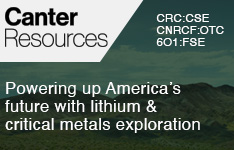The Life Sciences Report: You've been on the buyside at both U.S. and Canadian firms, and therefore have a good basis for comparison of the two systems. You are a growth investor, and your recent portfolio performance bears that out. Can you explain the biggest differences between investing in U.S. versus Canadian healthcare securities?
Bruce Campbell: The biggest difference is obviously the depth of the market in the U.S. There are some really significant large life sciences and healthcare companies down in the States. You don't tend to have that in Canada. We have Valeant Pharmaceuticals International Inc. (VRX:NYSE; VRX:TSX), which is the largest Canadian healthcare company and would certainly rank up there with many of its U.S. peers, with a near $90 billion ($90B) market valuation. But below that there's a huge pocket of air before the next level of Canadian companies, which roll in at the low billion-dollar range, or maybe are valued at a couple of billion dollars. Then, there are a lot of companies below a billion. In the U.S., that pocket between Valeant and the next tier is completely filled in. You have everything from the small startup to the gigantic life sciences company. You just don't see that in Canada.
TLSR: You have fewer companies to sift through. Could that be construed as an advantage for you, as a Canadian life sciences investor?
BC: Going back a year or two ago that would have been the case, just because the overall Canadian market was really dominated by energy, materials and financials, and the healthcare sector wasn't something a lot of investors had in their portfolios—or even looked at for that matter. There were lots of undiscovered gems in the healthcare sector that, if you wanted to turn over enough rocks, you could find.
"Nobilis Health Corp. recently acquired a marketing company to help fill its hospitals. Management has done a good job."
However, once investors began to look at Canadian life sciences companies, the stock prices went up. In the last 18 months—probably more specifically, even the last nine months—you've started to see more investors focus on the sector as an alternative because, obviously, the materials and energy sectors have been so difficult for the majority of investors. As a result, I think there are now fewer opportunities in the life sciences.
TLSR: Do you think that many of these life sciences companies have achieved, or are nearing, full valuation?
BC: From a valuation standpoint, there is certainly more reasonable valuation, or valuation that would be in line with what you would see with U.S. peers. In the past, we saw Canadian companies trade at more of a discount from a valuation standpoint than they do now. As I say, it's a function of so many more investors looking at the sector.
TLSR: My impression is that Canadian investors, or those who invest in Canadian stocks, seem to seek companies that don't have big, pivotal, binary-event milestones. These investors also tend to seek companies with cash flow. Is that what Canadian investors are looking for, or is that just what happens to be available?
BC: I think that's more a function of what Canadian investors are looking for. There are certainly companies in the Canadian marketplace with binary-event opportunities in their futures. If a company can get a drug approved, the stock is going to jump. If it can't, the stock won't.
"More Canadian investors are focusing on the life sciences sector as an alternative because the materials and energy sectors have been so difficult."
I would say that, for the most part, because Canadian investors tend to be more conservative, you tend to see much higher valuations in the U.S. for binary-event companies before the binary outcome is announced than you do in Canada. Canadian investors are more focused on cash flow and are less willing to invest in a company with a significant binary outcome in its future. The stock prices of these types of companies do not get bid up as much until after an event occurs.
TLSR: Bruce, you have a very strong acquisition theme. If there were one thing I could pick out from your investment theory, it would be that you look for companies that grow horizontally. Do you worry that acquisitive companies will have trouble integrating the acquisitions they make?
BC: Yes. That's always a concern when you see a company making multiple acquisitions: How is it going to be able to integrate?
The second thing you always worry about when a company makes multiple acquisitions is that, at some point, there will be a misstep. It's just kind of inevitable. Is that misstep going to be a large deal or a small deal? If the company is making several smaller deals, the misstep might not end up being as impactful to the bottom line. If the company is leveraging up and getting bigger deals as it goes along, the potential impact of a misstep becomes greater.
TLSR: Is it fair to say that part of your investment theory is to look for visibility within the next three to four quarters?
BC: Yes. For the most part, we're not looking for something that's going to have a binary outcome several years down the road. We're looking for something that, as you say, has a catalyst occurring in its business over the next several quarters, so that we see some sort of consistency in the stock.
TLSR: I'm looking at 12-month total returns on some of the names in your portfolio, and several of these names have achieved phenomenal share price growth. Do you believe your acquisition and cash-flow theme can achieve consistently higher returns over a longer period of time?
BC: We'd like to believe that, but the law of numbers says that's probably not the case. We'll take advantage of the theme now, while it works. But as I mentioned, there is more focus on investments in the life sciences than there was 18 months ago. Some of the numbers we've generated were outsized because the sector wasn't well followed. Some companies made acquisitions that were transformational, and at the same time we saw more individual investors looking at these opportunities. I don't think that's the case now.
There are just more people out there turning over rocks.
TLSR: Could we talk about some names in your portfolio?
BC: Nobilis Health Corp. (HLTH:NYSE; NHC:TSX) has been around for a while. It is in the ambulatory hospital business in the U.S. It recently made acquisitions that not only transformed the company in terms of size, but also in terms of what those acquisitions meant from an earnings standpoint. Nobilis also recently acquired a marketing company to help fill its hospitals. Management has done a good job.
"Canadian investors are focused on cash flow, and are less willing to invest in a company with a significant binary outcome in its future."
We found out about Nobilis as it was in the process of closing its Texas acquisition last fall. We looked at all the numbers, and they made lot of sense to us. It seemed like the company had a very reasonable valuation, especially given what management was projecting. About that same time, the rest of the market started to take notice, and the stock has gone from cheap to, at times, very expensive, and is now attractively priced again.
TLSR: This stock is very typical of your investment style. Nobilis seeks to grow by acquiring ambulatory surgical centers, and today this theme is quite strong. Much larger companies are now in this game, like HCA Holdings Inc. (HCA:NYSE), Tenet Healthcare Corp. (THC:NYSE), AmSurg Corp. (AMSG:NASDAQ) and Surgical Care Affiliates Inc. (SCAI:NASDAQ). Is it getting harder to find value in the independent ambulatory surgical centers that Nobilis would like to acquire?
BC: I don't think they come as cheap as they did because of competition. Nobilis has a couple of advantages, one of them being its size. Its market valuation is approaching $400 million ($400M), and it is not really competing with those companies you've mentioned, which are much larger. Acquisitions that will move the needle for Nobilis wouldn't necessarily move the needle for a lot of its competition. Nobilis can look at surgery centers that are smaller.
Its second advantage is its new marketing division. One of its recently announced acquisitions was working through bankruptcy. Because of that, Nobilis got a much better deal than what it had initially thought it would. Now Nobilis has to go out and build up that center. It probably was in bankruptcy because it wasn't doing enough surgeries. That's where Nobilis' marketing division will come into play.
TLSR: One of the Nobilis' strategies is to develop economies of scale through central purchasing and other mechanisms. But there is only so much efficiency you can squeeze out of a system. How long does it take before you're not able to achieve that type of scale anymore?
BC: That's obviously something I will leave up to Nobilis' management team to figure out. The company is trying to reduce costs, but it's also trying to enhance its business from the marketing side by filling its centers with as many surgeries as it can run through its facilities.
TLSR: Could you go to the next name, please?
BC: Inspira Financial Inc. (LND:TSX.V) is helping physicians and small medical practices finance their secured receivables—money that's coming directly from the government. For example, the doctor does a $20,000 ($20K) surgery. Let's say the patient pays $4K, and Medicare pays $16K. What these clinicians have discovered is that the time it takes to get payment from the government has been extended. Where they once were paid in 30 days, now it can be 60 or 90 days before they actually receive the money. There is not a lot of uncertainty that they will be paid, but it still is a delay. To help these doctors grow their practices, Inspira steps in. It has a unique structure whereby the payment can be made to the doctor ahead of money coming from the Medicare system. It's almost like a factoring loan for doctors for their receivables. It allows them to convert accounts receivable into money today, while Inspira waits for the money to come from the government.
TLSR: How much does Inspira charge the clinic or clinician for this?
BC: It can vary. The actual interest rate is one thing, and Inspira tacks on of fees over and above for various different things. From what we understand, those are in the 10–12% range. Doctors would otherwise have to go to a bank for a personal line of credit, or provide personal guarantees, or mortgage their homes. But that is not the case, given the way Inspira has structured the business. It has been able to come up with a legal structure that allows the company to access money from Medicare and have the security of receiving those payments.
TLSR: Are these recourse loans? If Medicare doesn't pay, or rejects the claim, does Inspira come back on the clinic or the physician to recover that?
BC: I believe it can, but typically, these procedures are approved by Medicare, and it's just a function of waiting. Inspira has said these are effectively AAA-rated securities because it's a government payment. It's more about cash-flow timing versus anything else.
TLSR: Could you go to the next name, please?
BC: Convalo Health International Corp. (CXV:TSX.V) is fairly new in the business. It's another growth-by-acquisition company, but there is also an organic growth component to this story. It operates substance abuse centers, and the first place it has targeted is the Los Angeles area, where it has two locations.
"If a company is leveraging up and getting bigger deals, the potential impact of a misstep becomes greater."
There are different levels of substance abuse. The first level is straight detoxification. Convalo has not gotten into that business yet, but is saying there's potential for that. The company is now providing a supportive framework for patients after they have been released from detox. It helps the patients stay on track with their programs. Of course, this is a direct result of the Patient Protection and Affordable Care Act, which basically allows kids to stay on their parents' health insurance until age 26. Here again, these facilities are being paid by the healthcare system, and the margins are fairly strong.
What Convalo has found is that the addiction recovery industry is very fragmented. Typically, you find clinicians with some type of side practice; they run group sessions to provide cash flow. Convalo has come in and bought a couple of those businesses, and then has looked to expand them. It has made the facilities more attractive and appealing. So far, the numbers have been phenomenal as far as organic growth. Convalo hasn't done a lot from an acquisition standpoint as yet; organic growth is the big thing right now.
TLSR: How is Convalo getting patients?
BC: The company has built out a sales network of "influential" individuals. To be "influential," you have to be someone who has recovered from a substance abuse problem. Typically, those people are involved with either an Alcoholics Anonymous program or something like it, and they are going out and sourcing patients for Convalo's programs.
The second example of an "influential" individual is the clinician, who may have dealt with someone on an individual basis and refers that person to Convalo's group therapy program. Part of the company's strategy will be, at some point in time, to acquire the first stage of rehab as well. Then it will have a direct referral source for patients to its programs.
TLSR: Do you consider these two clinics in Los Angeles to be a pilot program?
BC: It's beyond the pilot-program stage now. Convalo has things pretty defined and streamlined. Now, it's a function of growing that out into other markets and other cities. The company says it is targeting the big cities in the U.S.—New York, Miami, San Francisco, Chicago, Dallas, Houston.
TLSR: Does Convalo have an exit strategy? Does it intend to grow to a point that it gets acquired by a larger hospital with a recovery program?
BC: Yes. Convalo says it would like to build a nice, cash-flow-generating business and then, at that point, either a larger operator or private equity group could come in and take out the company.
TLSR: Could you go to the next company, please?
BC: CRH Medical Corp. (CRH:TSX) has its own specific treatment for hemorrhoids, and has had great success with that business. It sells a banding product and trains doctors to use it. At one point in the company’s history, it was operating its own clinics, but CRH realized that wasn't the best way to go, so it shifted direction and started to train independents and sell its product on a recurring basis. The company has consistently grown—it had nine or 10 quarters where it saw growth in both the number of doctors trained on its system and the number of procedures performed.
Last December, CRH made a transformational acquisition. It acquired Gastroenterology Anesthesia Associates (GAA), a company that provides anesthesiology for different procedures, most commonly for colonoscopy. That really changed the business. CRH saw a huge ramp-up in its revenue, and obviously in its EBITDA (earnings before interest, taxes, depreciation and amortization) as well. While its O'Regan hemorrhoid treatment has continued to grow, now CRH is starting to see a big bump in its year-over-year and quarter-over-quarter numbers. This surge began with the acquisition of GAA.
CRH feels there are more acquisitions to be made in that sector. It's a fairly high-margin business and one that the company thinks can continue to grow. The company also plans to do some cross-selling between the doctors already trained for the hemorrhoid treatment.
TLSR: Do you have one more name to share?
BC: Yes. This last one is interesting, especially of late. Patient Home Monitoring Corp. (PHM:TSX.V) has been acquiring small home medical monitoring businesses. It has now gone into bigger monitoring businesses as well, for different indications. Its last large acquisition was of a company called Sleep Management out of the U.S. It has been able to roll up and do some cross-selling between its different client bases. The company has been growing fairly aggressively by acquisition, but is also producing significant organic cross-selling growth among patients with different disease indications.
TLSR: PHM down about 60% over the last 16 weeks, but if you look at it versus one year ago, it is up about 115%. Why have the shares been beaten down recently?
BC: Roger Greene and Michael Dalsin, who were more or less founders of the business, came in about 24 months ago and transformed PHM. It was just a small shell before they took over. Over the last 18 months, they made the lion's share of PHM's acquisitions, and were both fairly significant shareholders. The public filings announced they had sold all their positions, when in fact they had not. So the Street has been very upset with management. While the business seems intact and is growing great, the share price has been beaten up of late. It's very rare that you see this type of share price drop without a significant drop in the underlying business of the company. This is not the case with PHM: In fact, the business is stronger than ever.
TLSR: In the U.S., we seem to be moving to an outcome-based healthcare system, where providers are rewarded for things that work. The Centers for Medicare & Medicaid Services (CMS) and private payers want to see that services are actually working for patients. On its website, PHM talks about outcomes. Does it have to continue to show CMS and private payers that these services are saving money for the system?
BC: I think the company will have to continue to prove that. Otherwise, Medicare won't support it, and it will lose funding.
TLSR: Thank you, Bruce.
Founder and portfolio manager of StoneCastle Investment Management Inc., and a former portfolio manager for some of the largest investment dealers in Canada and the U.S., Bruce Campbell brings more than 22 years of experience to fund management. A graduate of the University of Alberta with a bachelor of commerce degree specializing in finance, Campbell has earned multiple designations in investment management, including the Chartered Alternative Investment Analyst (CAIA) and the Chartered Financial Analyst (CFA) designation, one of the most prestigious designations in the financial industry. Campbell is a past president of the Okanagan CFA society.
Read what other experts are saying about:
Want to read more Life Sciences Report interviews like this? Sign up for our free e-newsletter, and you'll learn when new articles have been published. To see recent interviews with industry analysts and commentators, visit our Streetwise Interviews page.
DISCLOSURE:
1) Dr. George S. Mack conducted this interview for Streetwise Reports LLC, publisher of The Gold Report, The Energy Report and The Life Sciences Report, and provides services to Streetwise Reports as an independent contractor. He owns, or his family owns, shares of the following companies mentioned in this interview: None.
2) The following companies mentioned in the interview are sponsors of Streetwise Reports: Nobilis Health Corp. The companies mentioned in this interview were not involved in any aspect of the interview preparation or post-interview editing so the expert could speak independently about the sector. Streetwise Reports does not accept stock in exchange for its services.
3) Bruce Campbell: I own, or my family owns, shares of the following companies mentioned in this interview: None directly. I personally am, or my family is, paid by the following companies mentioned in this interview: None. My company has a financial relationship with the following companies mentioned in this interview: None. I was not paid by Streetwise Reports for participating in this interview. Comments and opinions expressed are my own comments and opinions. I determined and had final say over which companies would be included in the interview based on my research, understanding of the sector and interview theme. I had the opportunity to review the interview for accuracy as of the date of the interview and am responsible for the content of the interview.
4) Interviews are edited for clarity. Streetwise Reports does not make editorial comments or change experts' statements without their consent.
5) The interview does not constitute investment advice. Each reader is encouraged to consult with his or her individual financial professional and any action a reader takes as a result of information presented here is his or her own responsibility. By opening this page, each reader accepts and agrees to Streetwise Reports' terms of use and full legal disclaimer.
6) From time to time, Streetwise Reports LLC and its directors, officers, employees or members of their families, as well as persons interviewed for articles and interviews on the site, may have a long or short position in securities mentioned. Directors, officers, employees or members of their families are prohibited from making purchases and/or sales of those securities in the open market or otherwise during the up-to-four-week interval from the time of the interview until after it publishes.





































